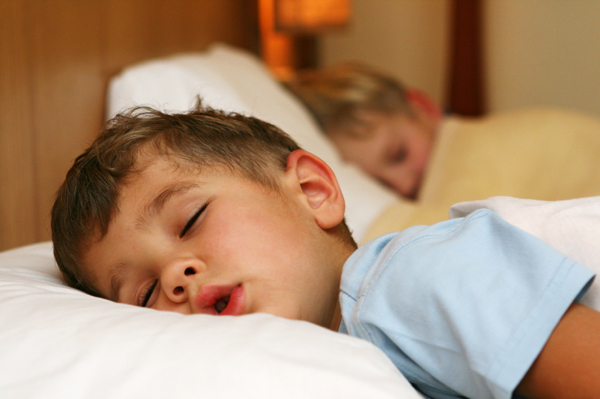Sleepwalking, also known as somnambulism, is a condition in which a sleeping person appears to be awake and exhibits behaviors associated with being awake, but is actually still asleep. Sleepwalking can be more than just walking, however. Sleepwalkers also perform other activities, such as sitting up in bed, opening the refrigerator, eating food or even driving while asleep.
Sleepwalking is much more common in children than in adults. A recent survey found that around 1 percent of preschool children and 2 percent of school-aged children sleepwalk at least a few nights each week. Because the person is in a deep sleep throughout the episode, he or she usually will not have any memory of the activity.
“In most cases, children who sleepwalk don’t need extensive examinations or testing,” said Dr. Neal Nakra, medical director of the CHOC Sleep Center. “However, if the sleepwalking is persistent or involves concerning behaviors, a consultation with a sleep specialist can help rule out any medical problems and identify the proper strategies for your family.”
Sleepwalking Behaviors
Of course, getting out of bed and walking around while still sleeping is the most obvious sleepwalking symptom. But young sleepwalkers may also:
- sleep talk
- be hard to wake up
- seem dazed
- Have open eyes with a glassy, staring appearance
- Perform repeated behaviors, such as straightening their pajamas
- Give slow responses with simple thoughts, or use nonsense phraseology or absent responses.
What to Do if Your Child Sleepwalks
If your child sleepwalks, it’s important to modify the sleep environment to reduce the risk of injury to your child. Some steps to take include:
- Ensure all doors and windows are locked.
- Make sure sharp objects are put away and secured.
- Reduce the risk of tripping and falling, especially down stairs.
- Hide all car keys if you have a teen sleepwalker.
Why Do Kids Sleepwalk
Sleepwalking is far more common in kids than in adults, and tends to run in some families. Most sleepwalkers outgrow it by the early teen years, and it is rarely caused by an underlying medical, emotional or psychological problem.
Other factors that may bring on a sleepwalking episode include:
- lack of sleep or fatigue
- irregular sleep schedules
- illness or fever
- certain medications
- stress.





















